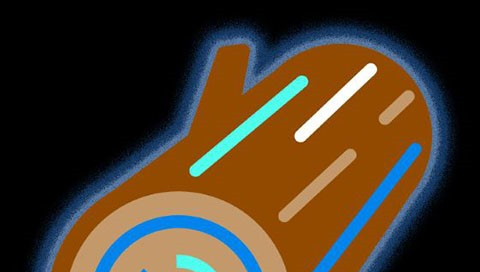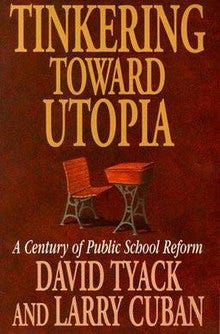𝐀𝐈 𝐋𝐨𝐠 rolls on, less often and occasionally longer
During the glory days of blogging twenty years ago I wondered about writing on the internet. What could I blog about that was a) something I know enough about for my words to matter and b) important enough to sustain my (and readers') interest? I never came up with an answer.
Then I spent the first half of 2023 reading everything I could about generative AI and fulminating to friends about all the hype and misinformation. They smiled politely and suggested I start posting on LinkedIn since that’s where I said so many people were being wrong on the internet. I had found something that mattered (generative AI) and that I know about (introducing new technology to educational institutions).
My first post on AI Log went up on August 25, and since then, I’ve met my self-imposed weekly deadline to post something coherent (or close enough) about what’s happening.
Nearly six months later and well over a year since ChatGPT showed us that many of our students don’t care to do the work we assign them in school, I have a sense that the discourse is shifting. Many people are still being wrong, but there are also plenty of reasoned, skeptical voices writing news round-ups and quick takes. Credulous headlines appear less often (maybe am I just better at ignoring them?) and hand-wringing over homework seems to have given way to an interest in sharing experiments with the new tools designed to engage students in learning (maybe the algorithms only feed me what I want to read?).
The chorus of AI explorers and skeptics that I joined in August seems to have an audience and several of the notes that we have been singing have been heard. AI detectors don’t work. Personalized learning in the form of chatbot tutors will not transform teaching overnight, and probably not at all. Foundation models have ethical issues that should give users pause. Implementing generative AI tools should be done incrementally and in ways that prioritize the humans using the tools. For the most part, universities don’t seem to be buying the generative AI hype, literally or figuratively.
It’s a crisis! But then, when hasn’t public education been in crisis? The current challenges are not unique to this moment. Interfering boards, antisemitism, protests against imperialism, double standards for women leaders, and backlash against admitting black and brown people to elite colleges are nothing new.
The weekly pace I set for myself has reached the point of diminishing returns. I have decided that my writing time is better spent on longer pieces that take a broader view, although I still plan to knock out the occasional take on what’s happened lately.
Generative AI is creating a weird collection of cultural technologies that are changing education—I use changing deliberately here, avoiding the words transforming, disrupting, and revolutionizing as overdramatic. Introducing new tools for constructing knowledge into educational experiences is something we have been doing since the days of chalk and slate—really since the invention of language—and each time is an opportunity to change the social structures of learning, for good or ill.
I write to work toward the good and avoid the ill, and to argue that this change should be led by the people doing the teaching and learning, not the people selling and counting. To borrow the title of one of my favorite books on the history of educational reform, I approach generative AI as an opportunity to tinker toward utopia.
To speak of utopia may sound absurd. Look at the headlines about higher education. Read the reporting about the challenges facing public schooling at all levels. It’s a crisis! But then, when hasn’t public education been in crisis? The current challenges are not unique to this moment. Interfering boards, antisemitism, protests against imperialism, double standards for women leaders, and backlash against admitting black and brown people to elite colleges are nothing new. History reminds us that the urgent stories about the threats of the moment are part of a much longer narrative about the challenges of schooling in a democratic society. I don’t mean to suggest that the threats are not real, just that we’ve faced them before and found ways to keep going.
Most readers are probably familiar with the not Mark Twain quote, “History does not repeat itself, but it often rhymes,” but I am partial to the Faulkner line, “The past is never dead. It's not even past.” I take that to mean that we are living in a present that goes back in time further than our own lives. The institutions where we work tend to be long-lived. Their histories define and limit us, but not completely. We can change them by tinkering with the bureaucratic machinery that structures our work as educators. Success, whether we call it utopia or something else, is not at all inevitable.
This notion—that outcomes are not pre-determined, that our futures are evitable, and that because our universe is unfinished, we make and remake our shared world through our actions—is a central theme of Williams James’s writing. What I’ve called utopia, he called “the salvation of the world.” He believed, as do I, that we have reason to hope for good outcomes even if they are not guaranteed.
James said, “You may interpret the word 'salvation' in any way you like, and make it as diffuse and distributive, or as climacteric and integral a phenomenon as you please.” Utopia need not mean anything more than a world slightly better than the world we live in, accomplished through shared effort. By the way, climacteric means a major turning point or critical stage (I had to look it up), which I think accurately describes where we are in terms of automating knowledge work. As institutions that create and teach new knowledge, universities will change in this next stage of the information age, just as automation changed factories during the industrial age. Maybe that’s a grandiose characterization, a little too much pundit futurism. I am increasingly coming to believe that the information and industrial revolutions are different ways of describing the same set of social changes, changes that are far from over.
I don’t mean to suggest anything more than that our reform work, including incorporating generative AI, should aim at salvation in the broadest Jamesian sense. We should make reform as diffuse and distributive as we need it to be, by which I mean that we should preserve what is valuable and human about our institutions without trying to agree on exactly what the next decade or even the next year will bring. How could we even know?
What we do know is that time rolls on. And so will AI Log. But less often than weekly. I will continue to publish short essays on the latest developments in higher education and meditations on how we might live in a technological world we did not ourselves create but want to change for the better. I plan to write longer pieces about the relevance of the pragmatist intellectual tradition for this climacteric moment and ways that past educational reform efforts are not dead, or even past. I hope you’ll stick around to read them.
I am grateful for every reader who finds their way here and frankly amazed that my writing, especially my essay On Techno-pragmatism, has found an audience. Thanks to everyone who provided encouragement and feedback during my first six months of blogging.
AI Log offers essays on how generative AI is changing education. To receive future posts in your email inbox, visit my blog on Substack. To receive a notice in your LinkedIn feed, click here. All content is free and I never share your email address with anyone.
𝑨𝑰 𝑳𝒐𝒈 © 2024 by Rob Nelson is licensed under CC BY-SA 4.0.





